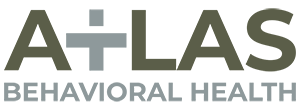Many people struggle with both mental health and substance use. That’s what we call a dual diagnosis. It’s more common than people realize, and it can affect anyone.
At Atlas Behavioral Health, we support people every day who are facing more than one challenge at once. This blog will explain common examples of dual diagnosis, how they show up, and why it’s so important to treat both sides of the struggle together.
What Is Dual Diagnosis?
A dual diagnosis happens when someone lives with both a mental health condition and a substance use disorder. These two issues often feed off each other.
For example, someone might start drinking to deal with anxiety. But the alcohol can make the anxiety worse over time.
The most common examples of dual diagnosis include depression and alcohol use, PTSD and opioid addiction, or bipolar disorder and stimulant abuse.
Each person’s experience is different, but the overlap is real. When one problem is ignored, the other tends to get worse.
At Atlas Behavioral Health, we don’t treat just the addiction or just the mental illness. We build treatment plans that focus on the whole person. That means helping you feel better emotionally, physically, and mentally. Because both parts matter. And both need care.
Understanding the connection is the first step. Recovery begins when you treat both sides at once.
Depression and Alcohol Use Disorder
One of the most common examples of dual diagnosis is depression mixed with alcohol use. Many people drink to numb sadness, sleep better, or quiet racing thoughts.
At first, it might seem like it helps. But over time, alcohol actually deepens the depression.
Drinking can make it harder to get out of bed, hold a job, or keep up with relationships. It can also make antidepressants less effective. This leads to a cycle that’s hard to break: feeling bad, drinking to cope, then feeling even worse.
At Atlas Behavioral Health, we understand how these patterns work. Our team builds treatment plans that support both issues at once.
We use therapies like Cognitive Behavioral Therapy (CBT), group support, and medical care to treat the root of the depression while helping you safely reduce or stop drinking.
You don’t have to choose between mental health and sobriety. You can heal from both, and we’re here to help make that happen.
Anxiety and Benzodiazepine Dependence
Another one of the common examples of dual diagnosis is when someone has anxiety and becomes dependent on benzodiazepines. These medications, like Xanax or Ativan, can be helpful for short-term relief. But when they’re used daily or without close supervision, they can cause more problems than they solve.
People may start taking more to get the same effect. Over time, the body and brain rely on the drug. Stopping suddenly can lead to panic, insomnia, or even seizures. That makes it even harder to quit, even if the person wants to.
At Atlas Behavioral Health, we help people gently taper off benzodiazepines while giving them the tools to manage anxiety in safer ways.
We use therapies that reduce stress, boost confidence, and rebuild a sense of safety. The goal is not just to stop the meds, but to feel better long-term.
Treating both the anxiety and the substance use is what makes recovery last.
PTSD and Opioid Addiction
Living with trauma can be overwhelming. It’s not uncommon for people with PTSD to use opioids to cope with pain, both emotional and physical.
This combination is one of the most dangerous examples of dual diagnosis because of the high risk for overdose and relapse.
Opioids can numb memories, help with sleep, or quiet the mind, for a while. But the trauma doesn’t go away. And once the effects wear off, the person may feel worse than before. That can lead to more use, stronger drugs, or riskier behaviors.
Atlas Behavioral Health takes a trauma-informed approach to care. We treat PTSD and addiction side by side. Our team includes trained therapists who understand how trauma affects the brain and body. We use therapies like EMDR and CBT, along with medication support when needed.
When both trauma and addiction are treated together, healing becomes possible. And that’s when real change begins.
Bipolar Disorder and Cocaine Use
One of the more severe examples of dual diagnosis is when someone has bipolar disorder and also struggles with cocaine use. This combo can be especially dangerous during manic episodes, when energy is high and impulse control is low.
Cocaine may seem to boost focus or confidence, but it often makes mood swings worse. It can trigger extreme highs followed by hard crashes. In some cases, it leads to more frequent episodes of mania or deepening depression.
Many people with this dual diagnosis are misdiagnosed or don’t get the full care they need. Treating just the substance use or just the mood disorder doesn’t work. That’s why Atlas Behavioral Health focuses on full-spectrum care.
We use mood stabilizers, behavioral therapy, and daily structure to help people find balance again. It’s not about controlling someone. It’s about helping them live a life that feels steady, safe, and worth waking up for.
ADHD and Cannabis Use
Some people with ADHD turn to cannabis to calm their minds or help them sleep. This might work in the short term, but over time, it can cause more trouble. This is one of the more misunderstood examples of dual diagnosis, and it often flies under the radar.
Cannabis can make it harder to concentrate, remember things, or stay motivated, especially for people with ADHD.
It can also create emotional ups and downs that look like other mental health issues. Many people don’t realize their cannabis use is making their symptoms worse, not better.
At Atlas Behavioral Health, we take time to figure out what’s really going on. We screen for ADHD, explore how cannabis is affecting your brain, and create a treatment plan that supports focus, motivation, and emotional balance without relying on weed.
You don’t have to do it alone. Real tools, not temporary fixes, lead to real change.
How Atlas Behavioral Health Treats Dual Diagnosis
All the examples of dual diagnosis shared here have one thing in common: they need care for both the mental health challenge and the substance use issue. If you treat only one side, the other often comes back stronger.
At Atlas Behavioral Health, we focus on treating the whole person. That starts with a personalized plan made just for you.
We offer a 3:1 client-to-staff ratio, so you always have support. Our team includes master’s- and doctorate-level therapists, licensed addiction counselors, and peer specialists who’ve walked this road themselves.
We use evidence-based treatments like Cognitive Behavioral Therapy, Dialectical Behavior Therapy, EMDR, and medication management. You’ll also find group therapy, sober living options, and a strong alumni network that stays connected long after treatment ends.
Dual diagnosis care takes teamwork. We bring the team, you bring your goals.
When It’s Time to Get Help
Real healing means treating the whole person. The examples of dual diagnosis in this blog are just a few of the many ways mental health and substance use can affect each other.
At Atlas Behavioral Health, we’re here to support you with care that’s compassionate, professional, and personalized. If you see yourself or a loved one in these situations, reach out today.
A healthier, more stable life is possible, and we’d be honored to help you get there.






